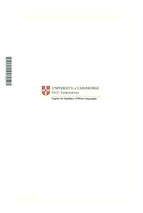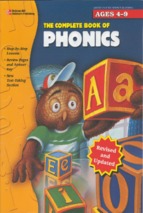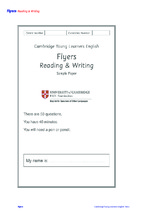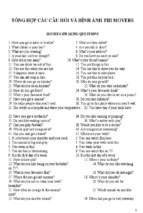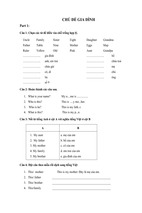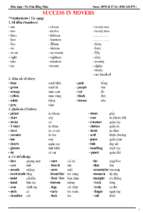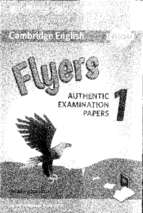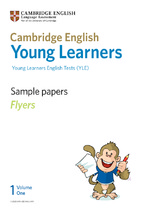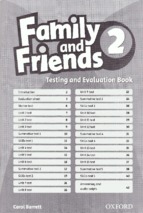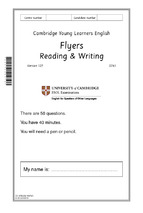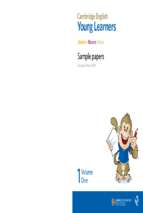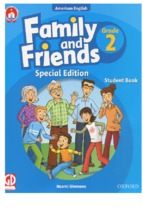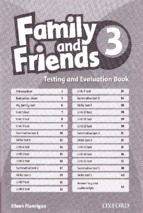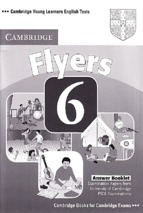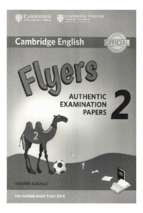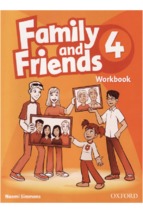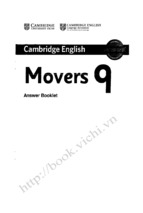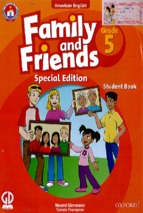STUDENT’S BOOK PACK
Campbe
M e tc a
b Be
+
S tu d e n t’s Resource Centre
B ig tre e
STUDENT’S BOOK
BEFORE SCHOOL
Grammar (1): be, have got, there is / there are
Vocabulary (1): Routines,
family, clothes, school things
Three apartments
Living together
Talk about homes and household jobs
Understand the main ideas
Present continuous and
present simple
ow iiiibn un
pages 1 0 -1 9
Talk about things happening
now, and about habits and
routines
Vocabulary (1):
Homes and household jobs
O Three apartments
UNIT REVIEW page 29
PROGRESS CHECK 1&2
WILD WORLD
pages 3 2 -4 1
pages 3 0 -3 1
The natural world
An environmental superstar
Past simple
Talk about landscapes and natural
features
Find specific information
Describe completed events in
the past
c
Vocabulary (1):
Landscapes and natural features
The h i l sound
0 The natural world
UNIT REVIEW page 41
UNIT
WHAT’S
COOKINGP
Inside the kitchen
Zach’s favourite recipe
Expressions of quantity
Talk about food and cooking
Use headings to find specific
information
Talk about quantity and
number of things
Vocabulary (1):
Kitchen equipment and cooking verbs
pages 4 2 -5 1
UNIT REVIEW page 51
PROGRESS CHECK 3&4
pages 5 2 -5 3
Different people
Talk about somebody’s personality
WHO AM IP
Vocabulary (1):
Personality adjectives
pages 5 4 -6 3
0 Different people
UNIT REVIEW page 63
Doodles and me
Identify the aim of a ter:
.es with prepositions +
4ng form
£ r -ess your feelings about
Being things
AFTER SCHOOL
Grammar (2): wh- questions, like + -ing
Vocabulary (2): Classroom phrases, free-time
activities
LISTENING & VOCABULARY GRAMMAR (2)
LANGUAGE & REYOND
Raspberry Pi
Articles a(n) and the
Get organised:
Listen for the main idea
Use a(n) and the to
refer to things
Use lists to help you organise Ask for and give
your time
opinions
Say what you think
Could you live without
your mobile?
(website answers)
Use the correct word
order
Vocabulary (2):
Computer parts
Soap story
Understand a situation
Vocabulary (2):
Free-time activities
Wonderful wildlife photos
Take notes
Present continuous
for future
arrangements
Get thinking:
On the phone
Identify the cause of
a problem
Check you understand
on the phone
My status update
(status updates)
Use and, also and too
Talk about
arrangements in the
future
© Sorry?
Past continuous and
past simple
Get organised:
Use mind maps to organise
Talk about actions in information for a talk
progress and finished
actions in the past
Vocabulary (2): Wildlife
I’ve got a suggestion
Make and react to
suggestions
A holiday story
(holiday story)
Write a story with time
expressions
© No way!
What a waste!
Indefinite pronouns
Respect others:
At a restaurant
Recognise facts and
opinions
Use indefinite
pronouns
Consider other people’s
needs and preferences
Express preferences
when you order food
My favourite recipe
(recipe)
Order ideas
Vocabulary (2):
Containers and amounts
© I’ll have salad
Word stress in phrases
Where do 1belong?
Recognise when speakers
need time to think
Vocabulary (2):
Countries, nationalities
and languages
Stress changes in words
Hopes, plans and
predictions
Talk about your
hopes and plans, and
predict events in the
future
Know yourself:
Can 1help?
Recognise what you’re
good at
Offer help and express
spontaneous decisions
A letter to myself in the
future
(informal letter)
Use because and so
© I ’ll help
II
THE PICTURE
an avatar
GRAMMAR (1)
Train your brain
Zero conditional, should
Read quickly
Talk about results and the
best thing to do
At work
Dangerous jobs
Talk about jobs and workplaces
Identify the topic of
paragraphs
Must and mustn't, have to
and don’t have to
Talk about the human body
Vocabulary (1): Parts of the body
Create an avatar
UNIT REVIEW page 73
PROGRESS CHECK 5&6
pages 7 4 -7 5
Vocabulary (1): Jobs and workplaces
Talk about things you need
or don’t need to do
Consonant pairs
© At work
UNIT REVIEW page 85
What’s on?
A long time ago ...
Talk about films and television programmes Identify the author’s argument
Present perfect with ever
and never
Talk about experiences
Vocabulary (1):
Types of films and TV programmes
The / f / sound
UNIT REVIEW page 95
PROGRESS CHECK 7&8
1%
•
SPORTS
pages 9 6 -9 7
Strange sports
The power of football
Relative clauses
Talk about sports and sports equipment
Understand pronouns
Use relative clauses to
describe people, things and
places
Science Museum
How it works
Present simple passive
Talk about inventions and materials
Use pictures for help with
new words
Use the present simple
passive to talk about facts
and processes
Vocabulary (1): Sports equipment
n rn n n v
i ■K
. 5i
pages 9 8 -1 0 7
© Strange sports
*
UNIT REVIEW page 107
Vocabulary (1):
Invention verbs and materials
The Ivl sound
© Science Museum
UNIT REVIEW page 117
PROGRESS CHECK 9&10
pages 1 1 8 -1 1 9
GRAMMAR DATABASE pages 1 2 0 -1 2 9
WORDS & BEYOND pages 1 3 0 -1 3 9
. rPBS page 140
Q
USTENING& VOCABULARY GRAMMAR (2)
LANGUAGE & BEYOND
Stretch!
First conditional
Communicate & cooperate:
At the doctor’s
Understand spoken
instructions
Talk about possible
situations in the
future
Communicate your message
when you give a talk
Ask for and understand
advice at the doctor’s
Vocabulary (2):
Exercise verbs
Word
stress in sentences
An artist and app designer
Present perfect
Respect others:
Sorry!
Recognise a speaker’s
message
Talk about actions
and events at an
unspecific time in
the past
Understand how different
cultures think about time
Make and react to
apologies
Vocabulary (2):
Work and study
My radio
Use the audio type to help
you understand
SPEAKING
What’s your advice?
(forum post)
Give examples
© What’s the problem?
My week
(informal email)
Start and finish
informal emails
and letters
© That’s OK
Present perfect with
already, yet and just
Communicate & cooperate:
Talk about problems
Talk about things
related to the present
1 know what you mean
b u t...
The best film ever
(blog post)
Agree and disagree
with someone
Use paragraphs
Vocabulary (2): Crime
Q I agree
Sports fans
Comparisons
Know yourself:
Winners and losers
Listen for specific
information
Compare people,
things and places
Learn to deal with stress
Congratulate and
sympathise with people
My sports report
(report)
Use pronouns
Vocabulary (2):
-ed and -ing adjectives
C Z 3
Syllable stress in
adjectives
© Well done!
Everyday objects
Past simple passive
Get thinking:
At the hardware store
Understand new words
Use the past simple
passive to talk about
completed actions in
the past
Share and exchange
new ideas
Describe things when
you don’t know the
English word
Vocabulary (2):
Everyday objects
EXTRAS pages 141-142
© 1need a thing
PROJECTS page 143
In my opinion
(opinion essay)
Present an
argument
BEFORE SCHOOL
Good morning!
Time t o g e t up!
I haven’t got much time
before school. First, I clean
my teeth. Our house has only
got one bathroom - and I’ve
got two sisters.
I'm Dylan. I wake up at 7 o’clock and I get
up at 7.10. (OK, I don’t always get up then
maybe at 7.20 or 7.30.)
THINK AND READ
1 Think of three activities you do before school.
Compare with the class.
2 (►HO Read the story. Are your activities in the story?
3 Read the story again. Do the exercises below
when you see this icon
.
m n /.
RECALL
1 V
FAMILY
Write the words for Dylan’s family members.
2
HAVE GOT
a (►BEEI Complete the sentences about Dylan.
Listen and check.
1 Dylan
has got
a mum and dad.
2 H e................... ....... two sisters. He
3 Dylan's dad
a brother. He
sister.
4 Dylan and his siste rs___
__ any cousins.
5 But the y...........................four grandparents.
any brothers.
a
b Work in pairs. Ask and answer about your family.
Use the words in Exercise 1.
Have you got
a brother?
Yes, I have. His name is ... / I’ve got
three brothers. / No, I haven’t.
3
CLOTHES
a Underline eight words for
clothes in the story. Can
you add four more words?
b What are your favourite
clothes? Tell the class.
Then I get dressed.
At my school we
wear black trousers
(not jeans!), a
white shirt, a green
sweatshirt and
black shoes (not
trainers!). Ugh!
Some girls wear a
skirt or a dress.
I have breakfast with
my dad and watch TV.
Have you g o t you r house
key and you r lunchbox?
H urry up!
I pack my bag for school. Yuck,
there are lots of horrible things!
,,
I go to school by bus
with my sisters.
THINGS IN YOUR BAG
®0EE> Put the correct words together. Listen and check.
In,
1
2
3
4
5
6
5
Dylan,'s bttcj there’s a/an, ...
exercise -— n
key
lunch
\
case
book
time
box
text
table
pencil
book
house
THERE IS/THERE ARE
a Complete the sentences. Use there is /is n ’t or
there are/aren’t.
In
1
2
3
4
5
6
»>
my sister’s school bag ...
there are
five exercise books
/
a blue pencil case.
/
a timetable.
X
a lunchbox.
/
lots of textbooks.
X
a house key.
X
Workbook, pages 4-5
I meet my friend on the bus. We get
to school at 8.30 - just in time.
5 b Work in pairs. Ask and answer
questions about what’s in your
school bag.
Is there a ... ?
Yes, there is. / No, there isn’t.
Are there any ... ?
Yes, there are. /
No, there aren't.
6
YOUR ROUTINE
Work in pairs. Tell your partner about
your morning routine.
I get up at 6 o’clock. I have
breakfast a t ...
AFTER SCHOOL
Please be quiet!
Closeyour books! For
homework write 1 0 0
words about your life.
School finishes at 4 o’clock
but I don't go home.
My teacher s name is Miss Harris
I like her. She’s always happy.
TH NIC AND READ
1 Tick (✓ ) the things you usually do after
school.
cook
do homework
meet people
go swimming
read a book
Hi. My
name’s
2 ®EEE> Read the story. Which of the
things in Exercise 1 does Dylan do
today?
3
D y la
Read the story again. Do the exercises
below when you see this icon »> .
This is Anna.
She’s a new girl
at the school.
RECALL
1
>
CLASSROOM PHRASES
V isa* Put the words in order to make
classroom phrases. Listen and check.
Then listen again and repeat.
1 24. / your / Open / at / books / page
Open, your books c\t page 24.
2 repeat / you / please? / Can / that,
3 the / don’t / I / question. / understand
4 please? / the / go / I / bathroom, / Can / to
2
,
LIKES and DISLIKES
a (VIES Which activities does Dylan like
doing? Write sentences. Then listen and
check.
1 / cook He Likes cooking.
2 / listen to music
3
4
5
6
/
/
/
X
read
swim
act
speak Spanish
5 a / borrow / please? / I / Can / pen,
b Work in pairs. Tell a partner which activities
6 How / say / English? / you / do / in / ‘pizarra’
in Exercise 2a you like and dislike. What
other activities do you like?
/ don’t like reading.
8
I like playing basketball...
NOTICES
Ik. m tk u irn McnJalj
fo ri hour to keSuM t
books.
w M R .G R e £ N ’S
5:15 in the
School Library
C O O KIN G C L U B
COMEmv>JOINUS
in rue school canteen
rUESDAMS
G:G5-b:00,y-'
\z
M
I get home at
6 and we all
have dinner.
Dad likes
| cooking a lot.
L j,
b—
H
*
I .K
SWItlMIBG Clir
music cuib
FHIPA'I 8 1 00
6okg art m&kramenr.
0«ij;Tterstl^
Tkfc: BiOO-fcOO
fkc&: ftxW |0|„.
After school I usually go to a club. There
are a lot of clubs in our school. I like
doing lots of things. I like swimming but I
don’t like acting. I hate acting.
W m m
ftf Tut SUinmflG PDfiU
m i it
ftnse+or 8% &ms
p th
liiM
1
L
J S S j S w S S ’'
^
B m fr
After dinner I do my
homework and write about
my life. I include some false
information ... ha, ha!
4
QUESTION WORDS
a , ►HU Complete the conversation with the question words in the box. Then listen
and check. Dylan doesn’t like acting but he says he loves drama. Why?
How
Anna:
Dylan:
Anna:
Dylan:
Anna:
Dylan:
Anna:
Dylan:
Anna:
Dylan:
Anna:
Dylan:
What
When
Where
Who
Why
(1)
W lw t
time is it?
It’s 4.15. (2)
do you want to know?
I want to go to the drama club. (3)
does it start?
At 4.30.
(4)
does the club meet? Do you know?
In the school hall.
(5)
long does it last?
45 minutes.
( 6 ) ................. ’s the teacher?
Miss Harris. She's my class teacher.
Do you like drama?
Urn ... yes, I love it.
b Work in pairs. Ask and answer questions about
another school club in the story.
When does the cooking club start?
4
a
It starts a t ..
Read Dylan’s homework and find the six
false facts.
He Iwtsvitgot o[ brother.
b Write about your life and include three false
facts. Show your description to a partner.
Can your partner find the false facts?
My name’s Dylan. I’m 1 4 years old. I’ve g o t two
sisters and one brother. I always get up a t
7 .1 0 . 1have breakfast with my mum. School
s ta rts a t 3 .3 0 . 1wearjeans and trainers to
school. My teacher’s name is Miss Green. I like
her. I also like swimming and listening to music.
I always tell the tru th .
M.y mwie’s ...
»>
Workbook, pages 6-7
9
IN THE PICTURE An app for everything
Talk about communication and technology
WORK WITH WORDS
1 ■;iw jiw Work in pairs. Make a list of the devices you can
see in the pictures. Can you add more things connected to
communication and technology to your list? You have two minutes.
2 Match the icons (1 -1 2 ) in the photo to the apps.
mail
calendar
games
videos
maps 1
calculator
notes
messages
web browser
app store
compass
social networking
3 (SEES Listen and check your answers. Then listen and repeat.
4 a
►H3)
word maps.
Listen and repeat the /ae/ sound in the
b (►HE) Listen and underline the /ae/ sound in the words.
Then listen and repeat the words.
app store
calculator
calendar
camera
laptop
tablet
5 Which app(s) can you use to ...
1
2
3
4
5
6
7
8
go on the internet? vJeb browser
find north?
write to other people?
chat online to your friends? __ _ ...........
do your maths homework?
find your location or destination?
.........
organise your time?
get new apps?_
6 Do the quiz.
HOW M UCH DO YOU KNOW ABOUT APPS?
DO THIS SHORT QUIZ TO FIND OUT!
App is the abbreviation for ...
A application.
B apple.
An app is ...
A an icon.
B a device. C a program.
The first online app store opened in ...
A 1999.
B 2003.
C appliance.
C 2008.
SPEAK
7 Q Work in pairs. Do one of the tasks.
1 Decide which three apps in Exercise 2 are the most useful.
Explain why.
2 Invent a new app. What’s it called?
What can it do? Tell other students about it.
PHRASE BYTES
IQ
I think ... are the most useful because
Our new app’s called ... and it can ...
MU
THE MOVING PICTURE © Watch four teenagers talking about
apps. Which ones do they use? What are their favourite apps?
»>
Workbook, page 8
©
Do the Words & Beyond exercise
on page 130.
11
sentences. Are they true
t. explain why.
understand new words
Identify the type of word (verb, noun, adjective,
adverb).
1
have lots of free time.
2 I listen to music or watch TV when I do my homework.
3 It's difficult for me to relax at home.
2
Compare it to your language. Is there a
similar word? Does its meaning help you?
»TB> Read the first paragraph of the magazine
article. Underline the words you don’t know.
Look at the words and sentences before and
after the new word.
3 a Read the tips in the ■ iinvma box.
b Write definitions for the words you underlined in Exercise 2. Use
the tips in the
box to help you. Don’t use a dictionary.
4 Work in pairs. Swap your definitions. Can your partner find the
correct words in the text?
Do you need to »witctI c!>ff more?
How often do you do nothing? For a lot of young people the answer is never. When
we sit down and relax, we’re always doing something. We watch TV, listen to music or
send text messages. We sometimes do all three at the same time. We hardly ever just
sit quietly and stop thinking. But our brain uses a lot of energy during the day and gets
tired. We need to stop thinking and switch off from time to time. Switching off helps us
to relax completely and feel full of energy again.
Do you need to switch off more? Answer the questions in the survey to find out.
*■ “ 1 i
-—
=
=
=
=
— — =
rrv —
How often do you do these things? Tick your answers. A
A = once a day
1 Watch TV
0
or more
2 Listen to music
0
3 Play video games
Li B = often, but not
0
4 Phone friends
every day
0
5 Send text messages
0
C = sometimes
6 Read and send emails
0
D = rarely or never
7 Use a social networking site 0
8 Chat online with friends
0
9 Go on the internet
0
10 Watch videos on the internet 0
31 Calculate your score (A ==3; B = 2; C = 1; D = 0).
Then read the explanation for your score.
Do the survey in the magazine article and
calculate your score. Then read the explanation
for your score.
REACT
c
0 0
0 0
O 0
0 0
0 0
0
0
0 0
0 O
0 C
0 o
O
—
——i
D
___
Scores and explanations
7
You regularly do
nothing. Don’t stop
switching off!
8
P
You do nothing once
or twice a week, but
it’s good to switch off
more often.
0
”
”
You rarely switch off.
Find 10 minutes a
day to do nothing.
PHRASE BYTES
I agree / don’t agree with it. I often/never...
Q
It’s difficult because ...
Of course it’s possible!
5 w Work in pairs. What do you think? Tell your partner.
1 Do you agree with the explanation? Why?/Why not?
2 Why is it difficult to switch off?
3 Is it possible to do your homework well if you listen to
music at the same time?
B
0
0
0
0
0
0
0
0
0
t's impossible because ...
GO BEYOND
Put the 10 activities in the survey in order,
with your favourite activity first. Then compare
your list th a oartner. Talk about what’s
similar and .'mat's different.
»>
Workbook, page 9
GRAMMA! Present simple and expressions of frequency
READ » >
Grammar in context
Read the conversation. Why isn’t Dan happy?
Dan:
Carla
Carla:
Dan:
Do you use the class blog?
Yes, I do. But I only log on from time to time
How often do you use it?
I log on after school every day. I always log
on at weekends too.
I rarely log on during the week. I don’t have
time. I occasionally log on at the weekend,
but my brother uses the computer a lot.
Right. So that’s why you don’t see
my messages.
STUDY
2 Complete the explanations with examples from
Exercise 1.
Present simple
Use: For habits, routines, things that are
generally true.
3
g r a m m a r data b a s e ,
(1) Dots your
mobile vu/ive
(your mobile / have) a camera?
(do).
Jude: Yes, it (2)
(you / use) it?
Sonia: How often (3)
Hardly
ever.
The
photos
(4)
Jude:
(look) terrible.
Sonia: So when you change your phone, you
(5)
(not worry) about the
camera.
Jude: No. But that’s because my dad always
(6)
(give) me his old phone.
1
I often, check, my emails.
2
I can’t play video games, (every day)
3
I listen to music when I do my homework,
(occasionally)
4
I watch videos on the internet, (from time to
time)
time.
Questions and short answers
do/does + //he, etc + verb:
the class blog?
Yes, I do. / No, he doesn't.
See
Excuse me. I’m
doing a survey about
mobile phones.
6 a Put the adverbs and expressions in the
correct place in the sentences.
Form:
Positive
l/you/w e/they + verb: / log on after school,
h e/she/it + verb + -s/-es/-/es:
My brother
the computer.
Negative
don’t/doesn’t + verb: I
Sonia:
I check my emails, (often)
5
My phone is switched on. (rarely)
6
I send text messages to friends, (now and
then)
page 120.
Complete the explanations with examples from
Exercise 1.
b Change the false sentences to make them
Adverbs and expressions of frequency
true for you.
Use: To say how often we do things.
Word order:
Adverbs (always,
,
adverb + go/use/see
can/am/is + adverb
Expressions (from time to time,
at the start or the end of a sentence
See
g r a m m a r d atabase ,
7 Prepare a survey. Write questions with How
often about these ways to contact your friends.
)
)
page 120.
chat online phone
send text messages
send emails
How often ...
SPEAK
4
Complete the chart with the adverbs in bold in
Exercise 1.
0%
never
hardly ever,________
1
sometimes,_________
often, regularly
usually, normally
8 Work in pairs. Ask the questions in your survey
and note the answers. Then tell another pair
the results of your survey.
Pavel sends emails ...
LISTENING AND VOCABULARY Raspberry Pi
» >
Listen for the main ideas
WORK WITH WORDS
1 Work in pairs. Answer the questions.
1 How often do you study IT (Information
Technology) at school?
2 Do you like studying IT?
Why?/Why not?
2 Match the computer parts to things in the picture.
mouse
keyboard
speaker
3
printer
USB port
microphone
monitor
headphones
screen
webcam
►IS0 Listen and check your answers.
Then listen and repeat.
4 Which thing(s) do you use ...
1
2
3
4
to
to
to
to
write with? keyboard
listen to things?......
see things? _
connect things?
LISTEN
5 a Read the tips in the
HOWTO
box.
b ®HE» Listen to the news report from a school website.
©
listen for the main ideas
Choose the best summary of the report.
1 A school has a lot of new computers for its IT classes.
2 A class is learning how to create computer games.
3 A school is using a small computer to teach students how
computers work.
Don’t worry if you can’t understand
everything.
Listen for words you already know.
Use these words to help you
understand important ideas.
6 Which tips in the HnWltH box did you use for help with
Exercise 5b? Tick ( / ) them.
7
►HU Listen again and choose the correct answer.
Tom Swift is ...
A a teacher.
B
The Raspberry Pi is ...
A cheap.
B
Students use the Raspberry
A learn to write code.
B
The report finishes because
A the Pi stops working.
B
at his school.
C at a different school.
simple.
Pi to ...
watch TV.
...
it’s lunchtime.
C a French invention.
C play games on the internet.
C Tom has no more questions.
REACT
8 Q Work in pairs. What do you think? Tell your partner.
1 Do you have a computer? What do you use it for?
2 Do you think it’s important for students to learn to
write code? Why?/Why not?
PHRASE sms
Do the Words & Beyond exercises on page
130.
I use my/our computer at home to ...
I think / don't think it’s important because ...
Workbook, pages 1 2 -1 3
GRAMMAR Articles: a(n) and the
» >
Use a(n) and the to refer to things
READ » >
Grammar in context
1 Read the description. W hat’s unusual about
the school? Why?
We’re at (1) a school in (2) Silicon Valiev in
(3) the United States, the location of many
of (4) the biggest technology companies in
(5) the world. It's called The Waldorf School
of the Peninsula, and many Silicon Valley
workers send their children here. But when
you go into (6) the school, you get a surprise.
There is no technology, just (7) books and
blackboards. Why? As (8) the teachers say,
a computer is not (9) a teacher!
4 Choose the correct options to complete the
conversation.
Pol:
I need to check my emails. Have you got
(1)@ / the / - computer?
Ray: Yes, I have. It’s in (2) a / the / - kitchen.
Pol: That’s (3) a / the / - strange place to keep it!
Ray: It’s (4) a / the / - laptop, and I always do my
homework there. It’s (5) a / the / - quietest
place in (6) a / the / - house!
5 Complete Ekin’s description with a, an, the or
no article (-).
STUDY
2 Match the underlined examples in Exercise 1
to the explanations.
Articles:
a(n) and the
Use: To say if something is a general or specific
example.
Form:
a{n) +
one example of a thing 1
a job
the +
a specific thing
the only example of a thing 5
superlatives and dates
something mentioned before G
plural place names
no
article +
things in general
meals, days, singular place names 2
See
g r a m m a r data b a s e ,
I study at a secondary school in (1)
ei
suburb of (2 )................... Sydney in (3 ).....................
Australia called (4 )................... Ashfield. For me,
(5)
best lesson of the week is IT. We
have (6)
___
really good teacher and I love
learning how (7) ......... .......computers work. It’s
(8)
last lesson before (9 )...................
lunch on (1 0 )................... Tuesday. (1 1 )....................
teacher also organises (12)
extra class
at lunchtime on Mondays and I always go to it. I’m
not very good at other subjects, but I always get good
marks in IT.
page 120.
PRACTISE
3 Complete the sentences. Write the if
necessary. If not, write (-).
1 At my school there a re ............... ... computers in
every classroom.
2 .............
computer room has a computer for
every student.
3 One day _
schools will stop using
textbooks.
4
internet is
best way to
learn
things about................... world.
Workbook, page 14
SPEAK
6
Work in pairs. Take it in turns to choose a
topic. Can you speak for 30 seconds about the
topic without stopping?
computers
the USA
my school
Sunday
the internet
English
breakfast
my birthday
15
READ
Work in pairs. Look at Jasmin’s notice board above. Copy
and complete her diary for Thursday, Friday and Saturday.
2 Look at the diary. Is it easy for Jasmin to do everything?
Why?/Why not?
DO
3
u Work in pairs. Help Jasmin to organise her time.
1 Decide which activities on each day are more important than others.
2 Decide which activities she possibly doesn’t have time to do.
3 Find a time for her to buy a present.
PHRASE BYTES
I think ... is/are more
important than ... because ...
I agree / don’t agree.
I don’t think she has time to ..
REFLECT
She can ... if she has time.
4 Discuss the questions with your class. Do you agree with
On Saturday maybe she can ...
first and then ...
the e H E ® ?
1 Was it easy or difficult to organise Jasmin’s time? Why?
2 Will it be easy or difficult for you to organise your time this week?
Why?
3 How do you feel when your time isn’t organised?
EXTEND
5 Make a list of the things you need to do over the next three
days. Then put the things in the order, with the most important
ones first.
6 Work in groups. Show other students your list and explain how
you decided on the best order to do things.
16
r
REFLECTION
P O IN T
s
It's a good idea to make a
list of things you need to
do
ng the week, and
then decide which ones are
more important than others,
’.'a- ng a st helps you to
: 'g a ' se your time and not get
stressed.
///
Workbook, page 17
SPEAK!?
» >
Say what you think
Ask for and give opinions
SPEAK
Work in pairs. Answer
the questions.
1 Do you watch videos
like these on the
internet?
Why?/Why not?
2 What do you think
happens next in each
video?
WATCH OR LISTEN
Q S H D Watch or listen to the scene. What do
the friends think about the video?
Marc: Hey guys. Watch this! ... So, what do you
(1)
about it?
Vicky: I (2)
it's good. I don’t (3)
it’s very original, but it’s funny.
Marc: What do you (4)
, Kate?
Kate: I don't (5)
. I (6)
it’s quite
funny, but it’s also a bit cruel.
Marc: Cruel?
Kate: Yes. Do you (7)
the cat’s happy?
Marc: No, maybe not.
Ben: Hey, what are you doing with my tablet?
Vicky: We’re watching that video.
Ben: So what do you (8)
about it? Just funny,
or really, really funny?
flfR U E l Complete the conversation with two verbs.
Then watch or listen again to check.
to* W&ffi ’
KpSfVH
Make this opinion negative. Use the conversation to help you.
I
think it's very original.
EEEEI Listen and repeat the expressions from the conversation.
u
Ask for opinions
What do you think a b o u t... ?
What do you think?
Do you think ... ?
ACT
Q Work in groups of three or four. Ask for and give your opinions
about these things. Give reasons.
computers IT classes
social networking sites
Workbook, page 15
mobile phone adverts
the internet video games
Give opinions
I think it’s/they’re funny/boring/
expensive ...
I don’t think ...
I don’t know.
17
WRITING Could you live w ithout your mobile?
» >
Use the correct word order
READ
1
Read the answers to the website question.
Which one is closer to your answer? Why?
en views
&
home
news
reviews
m
forum
& v ie w 5
The tech zone question
Could you live without your mobile? Here are some of your answers!
\
r
f
Yes /
I could easily live without it. I’ve
got a really old phone and I don’t
need another one. I hardly ever use
it. People sometimes ring me, but
I prefer to chat with friends face to
face. Other people in my class play
with their mobiles all the time and
never actually talk to their friends
when they meet!
V______________ __________________ J
2
No X
I couldn’t live without my mobile.
It’s the most important thing
I own. I do everything with it.
I use it every day to update my
profile, go on the web, check mail,
organise my time, and play games.
I rarely call friends because I never
have time, but I send text
messages about 20 times a day.
a Read the tips in the aiinvitiB box.
PLAN
b Find two examples of each tip in the
website answers.
4 You’re going to write an answer to the question
in Exercise 1. Use the W riting plan to help you
prepare.
HOWTO
use the correct word order
■ Start sentences with subject + verb + object (SVO).
■ Put adverbs of frequency before the main verb.
■ Put expressions of frequency after SVO.
■ Put adjectives, including comparatives/
superlatives, before nouns.
PRACTISE
3
WRITING PLAN
1 Decide on your answer.
Could you live without a mobile phone
or not?
2 Think of reasons for your answer.
Why could you or couldn’t you live without
a mobile?
3 Think about word order_____
Look at the tips in the I L i i'. 'li il box.
Put the words in order to make sentences.
Use the iilil'.'ii 1 box to help you.
1 games / all day. / I / on my phone / play
I
play tfeiwi&s ovt my phone- all deny.
2 send / rarely / text messages. / I
WRITE AND CHECK
5 Write your answer. Then check it. Tick ( / ) the
things in the plan.
3 every / my / I / call / friends / evening. / best
4
I’m / at the moment. / for browsing the web /
app / using / new / a
5 hardly / videos / watch / I / on my phone. / ever
SHARE
6 Swap your answer with people in the class.
Are other students' answers similar to yours?
>
Workbook, pages 1 6 -1 7
i
UNIT REVIEW
VOCABULARY Applications (Apps)
Computer parts
1 Complete the names of the apps.
2
The
1
2
3
4
5
6
7
8
9
10
Computer
Museum
The first apps
The names of the computer parts are
all wrong. Write the correct names.
1
5
g ____s
m __ s
n ____s
me
m ____
v _____ s
cal
cal
s o _____ net
app s _____
GRAMMAR Present simple, adverbs and
expressions of frequency
3 Choose the correct options to complete
the conversation.
A: The Computer Museum. How can I help you?
B: Hello. (1) You / Do you open at lunchtime?
A: Yes, (2) we’re always / we always are open at
lunchtime.
B: How much (3) do / does tickets cost?
A: It’s free for children and adults (4) pay / pays £5.
B: Is there a restaurant? We’d like to have lunch
there.
A: The museum (5) doesn’t / don’t have a
restaurant, but the cafe (6) normally has /
has normally some sandwiches.
B Normally?
A: Well, (7) from time to time we get / we from time
to time get a lot of visitors in the morning, and
we (8) run / runs out of sandwiches.
_ /1 6
Articles: a(n) and the
4
Complete the description with a(n), the or no
article (-).
WeAreFriends was one of (1)
first
internet websites. It was (2)
social
networking site for (3)
teenagers,
and when it closed in 1996 it had over 3,000
users around (4)
world. The creator of
(5)
website, (6)
student
1
called Steve Watzupi, ran WeAreFriends from
(7)
small Amstrong computer, and the
site closed when his computer stopped working.
His house in (8)
Oxford is now
a museum.
~/Vo
W
fi
Your score:__ /5 0
.•...; ;
SKILLS CHECK
Yes, I can. No problem!
Yes, I can. But I need a bit of help.
Yes, I can. But I need a lot of help.
I can
I can
I can
I can
I can
understand new words when I read........
listen for the main ideas.
use lists to help me to organise my time.
ask for and give opinions.
use the correct word order when I write.
K K ig llB
19
- Xem thêm -


